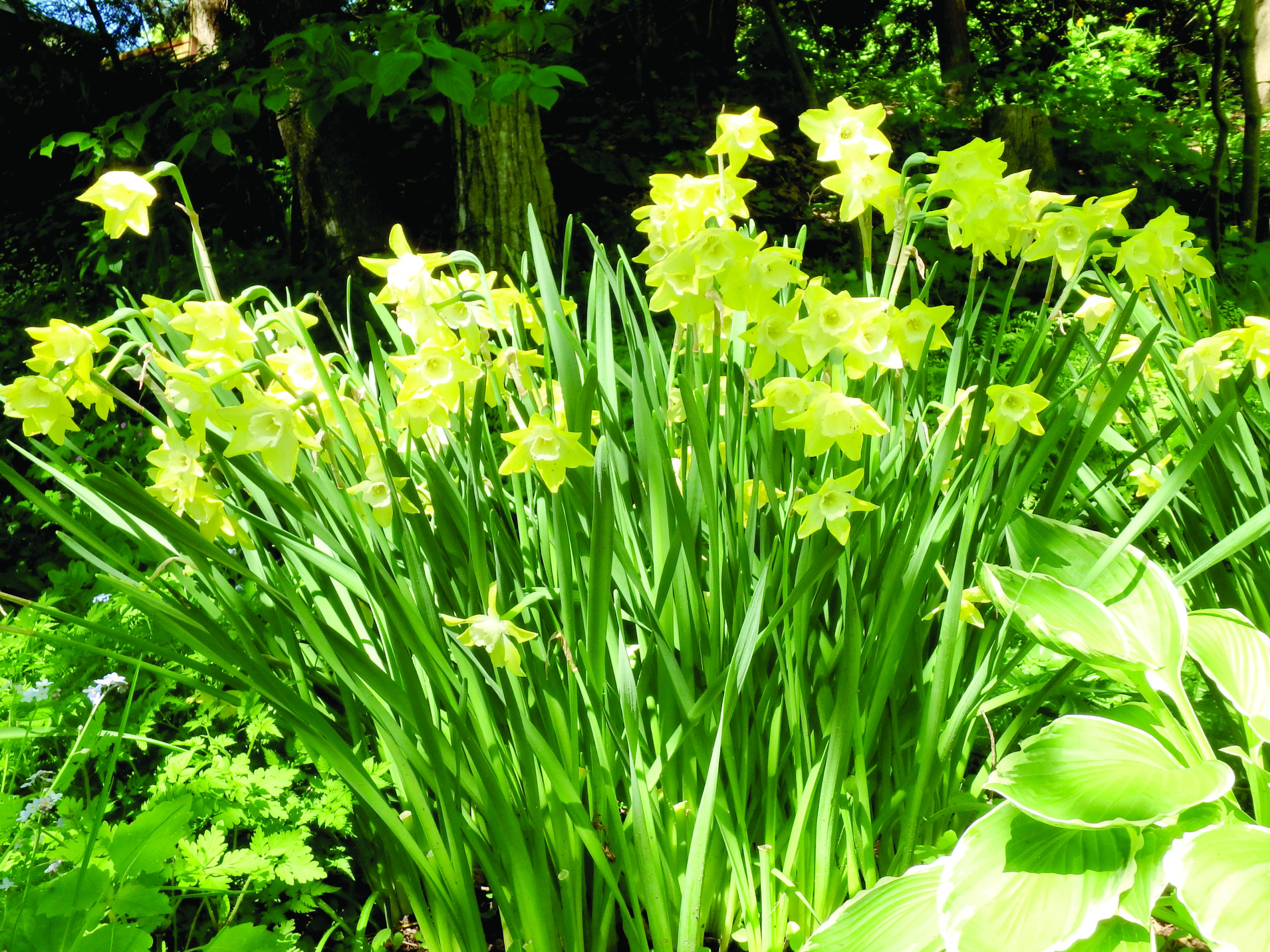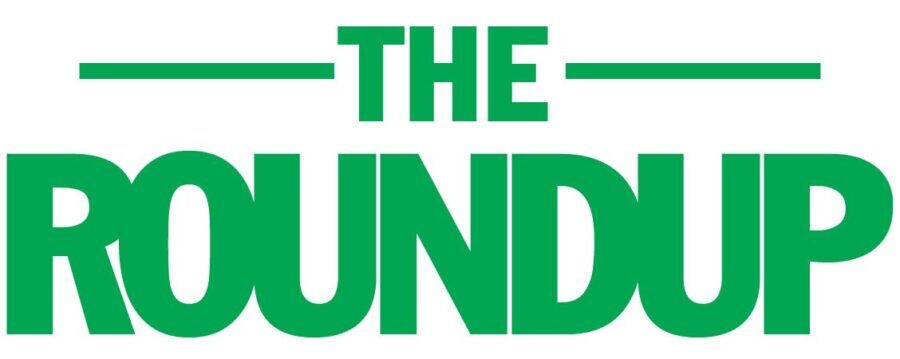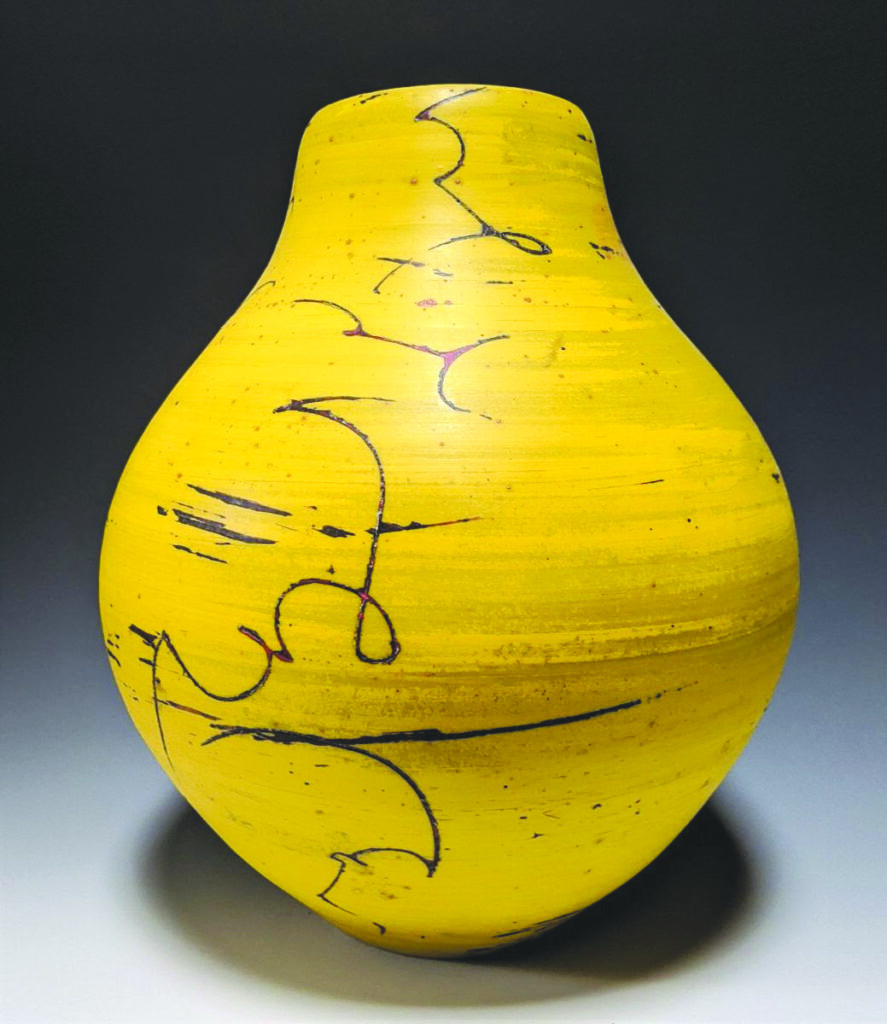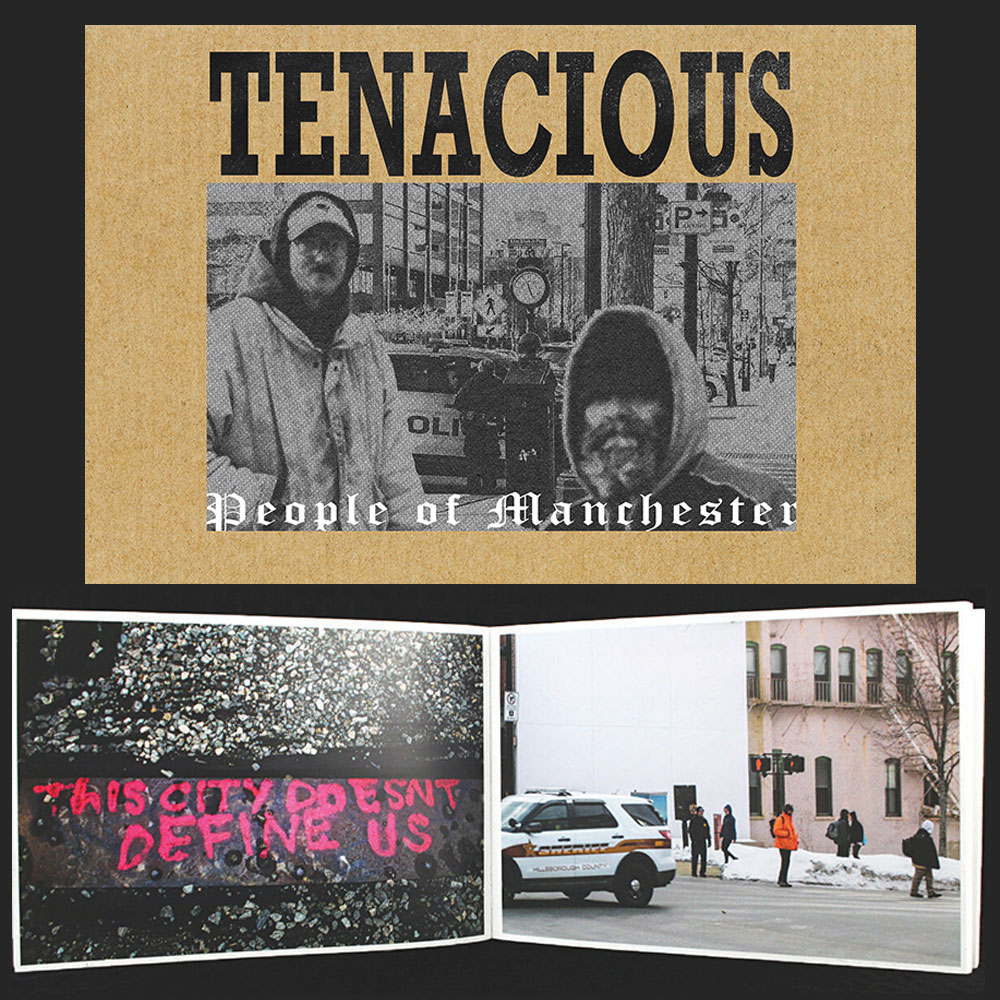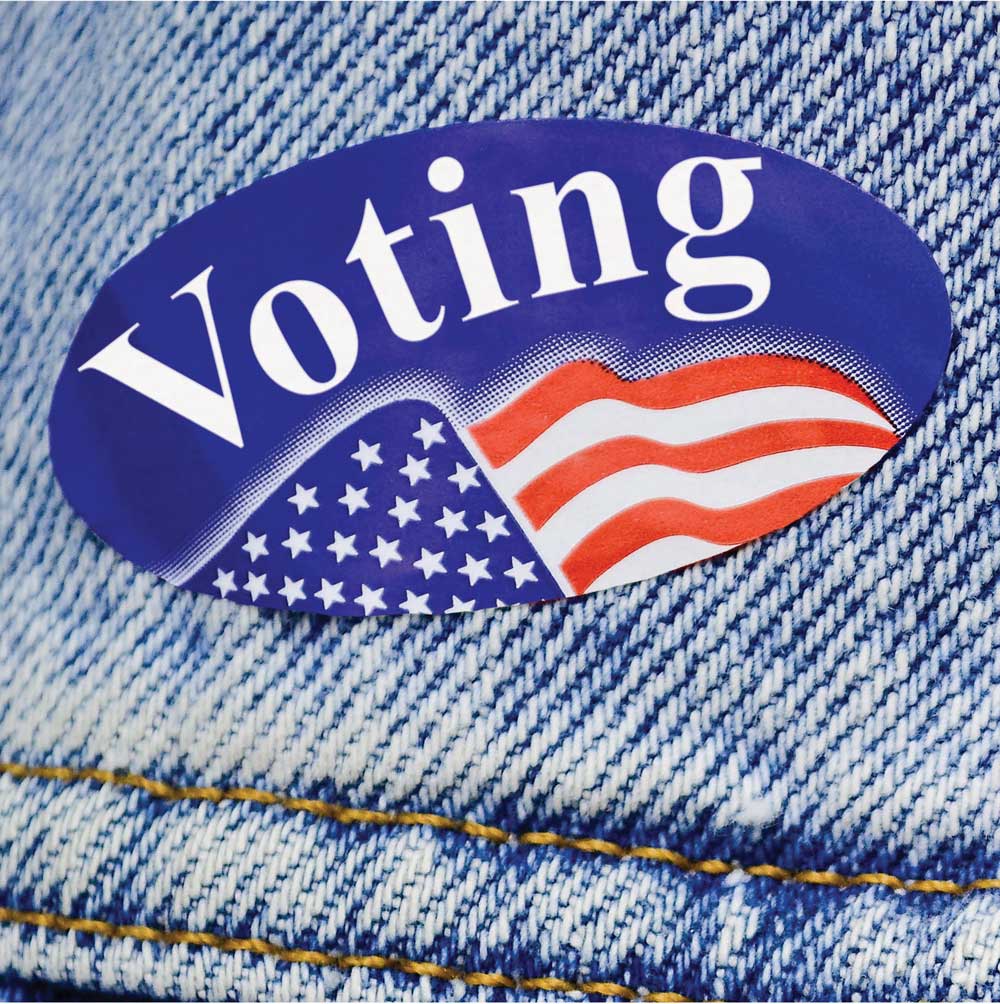With less than five weeks until election day, it’s not too early to consider how you might want to cast a ballot in this year of coronavirus concerns and altered school and work schedules. Here are the questions we had about voting this year with answers that can help you navigate the process.
The basics
When is the election?
The general election will take place on Tuesday, Nov. 3.
“Make no mistake: the election will happen in New Hampshire on November 3rd. End of story,” Gov. Chris Sununu tweeted on July 30 in response to President Donald Trump’s suggestion that the election should be delayed. “Our voting system in NH is secure, safe, and reliable. We have done it right 100% of the time for 100 years – this year will be no different.”
While it’s not mandatory for New Hampshire school districts to close their schools on Election Day, most districts are doing so, a number of city and town clerks said, especially since many cities and towns are using their schools as polling stations.
Other than the U.S. president, what are some of the offices and candidates on the ballot in New Hampshire?
Both of the state’s U.S. House of Representative seats are up: in the 1st District, Chris Pappas (incumbent, Democrat) vs. Matt Mowers (Republican); in the 2nd District, Ann McLane Kuster (incumbent, Democrat) vs. Steve Negron (Republican).
One of New Hampshire’s U.S. Senate seats is on the ballot: Jeanne Shaheen (incumbent, Democrat) vs. Corky Messner, (Republican)
In the governor’s race, Chris Sununu (incumbent, Republican) faces off against Dan Feltes (Democrat).
Also on the ballot are the state’s five Executive Councilors (find your district at nh.gov/council) as well as state senators and state representatives.
How do I register to vote? When do I need to register by?
To be eligible to vote, you must be at least 18 years old on Election Day, be a United States citizen and reside in the city or town where you plan to vote.
According to the New Hampshire Secretary of State website, there are three ways to register to vote in New Hampshire: in person prior to Election Day, in person at the polls on election day, and, if intending to vote absentee, by mail.
No matter where, when or how you register, the process is essentially the same: you’ll have to fill out a Voter Registration Form, and you’ll have to provide documents proving your identity and age, U.S. citizenship and residency. A driver’s license or non-driver ID (it can be from any state) will prove your identity and age, but not U.S. citizenship; for that, you’ll need a birth certificate, U.S. passport or Passcard or a naturalization document. If your license or ID is up to date with your current address, you won’t need anything else to prove residency. If it’s not, there’s a long list of other kinds of documents that will satisfy the requirement, such as an active rental agreement or lease with your name and address; an active motor vehicle registration issued by your town or city; a utility bill addressed to you where you live; and many others, which you can find listed on the Secretary of State website.
If, when registering to vote, you do not have documents proving your identity and age, U.S. citizenship and/or residency, you can still register by signing an affidavit, affirming under oath that you meet the voting eligibility requirements. If you do this, “You will be able to register to vote; you will be able to vote; and you will use a regular election day ballot that is counted on Election Day,” according to a voting registration guide on the Secretary of State website.
To register in person prior to Election Day, visit your town’s or city’s clerk’s office, and bring your documents of proof. You can get and fill out a Voter Registration Form while you’re there. The deadline is the date of your city’s or town’s last meeting of the Supervisors of the Checklist. The meetings are held some time between six and 13 days before Election Day, so check with your city or town to find out the deadline applicable to you.
If you miss the deadline, you can still register to vote at the polls when you go to vote on Election Day. Again, bring your documents of proof, and you can get and fill out a Voter Registration Form there.
Finally, if you are not yet registered to vote and you intend to vote absentee, you can register prior to the election by mail. First, call your town or city clerk and request to have a Voter Registration Form and Absentee Registration Affidavit mailed to you. You’ll need to have a personal witness observe you signing the affidavit and then sign their name on the witness’ signature line. After you’ve completed both documents, mail them, along with copies of the documents proving your identity and age, U.S. citizenship and residency, back to your town or city clerk in time for it to be delivered by your town’s or city’s registration deadline. If you have no one to serve as a witness, and/or if you cannot provide physical copies of your documents of proof, “contact your clerk for assistance,” states the voting registration guide. “You may request accommodation…” which may include the ability to email photos of your documents of proof to the clerk.
How do I know if I’m already registered or not?
You can check your voter registration status and verify that your information is correct using the Secretary of State’s voter information lookup tool at app.sos.nh.gov/public/partyinfo.aspx. If you aren’t registered, the tool will direct you to the town clerk where you can register.
What do I need to bring with me to the polls on Election Day?
If you are already registered to vote, the only documentation you will need to bring to the polls is a valid photo ID, in accordance with the New Hampshire Voter ID Law (see the Secretary of State website for a list of valid forms of ID).
The question of whether or not you need to bring and wear a mask should be addressed with your town or city. According to the memorandum “Election Operations during the Public Health Crisis” released by state election officials, moderators have the sovereignty to set rules about masks at their polls. If they choose to require masks, accommodations must be made for voters who refuse to wear masks. For the primary election, state election officials suggested in the memorandum that moderators consider establishing “separate entrances, exits, registration areas, and voting areas for those who are unable or unwilling to wear face coverings/masks” or “an outdoor space for voting by erecting a tent or shelter of sufficient size to allow for the registration and voting of non-face covered voters.” The guidance that was provided by the state for in-person voting procedures for the primary is currently being reevaluated and is subject to change for the general election. Thus, many cities and towns have not yet officially announced what their procedures for the general election will be.
“We ask that people who are voting just consider the officials working there and wear protective equipment and masks,” said Manchester City Clerk Matthew Normand, adding that masks and other PPE will be provided at the polls to voters who don’t have them.
While you might be voting during your regular breakfast or lunch hour, most cities and towns discourage or prohibit bringing food or drink to the polls for running the risk of soiling the ballots.
Vote on Election Day
Presidential elections always bring out the crowds. How are towns and cities preparing to serve crowds this year?
“The same way we do for every larger election: increase staffing,” said Normand, adding that 55,000 votes were cast in Manchester for the general election in 2016. “We’re bringing in more greeters to help organize people, and more registrars so that voters don’t have to wait in long lines.”
Salem Town Moderator Chris Goodnow said there was a record turnout of voters in Salem for the primary election, and he’s expecting another record turnout for the general election. Salem will have five polling stations — the most for any non-city in New Hampshire, Goodnow said — and will “staff up to an unprecedented level.”
“We’re setting up as many ballot clerk checklist tables as we can accommodate at each of the polling places so that we can break people up and get them in and out as efficiently as possible,” he said.
How many registered voters are there in New Hampshire? How many people actually vote?
As of Aug. 10, the most recent data released by the Secretary of State, there are 316,926 registered Democratic voters, 297,972 registered Republican voters and 386,548 registered undeclared voters. For the primary, 147,690 Republican votes were cast — 124,013 regular and 23,677 absentee — and 156,973 Democratic votes were cast — 90,293 regular and 66,680 absentee — for a total of 304,663 votes cast in New Hampshire. The 2016 primary had a record-breaking total of 538,094 votes, and the general election had 755,580 votes. In the 2018 elections for state offices, there were 228,262 votes for the primary and 580,568 for the general election.
When are polls open?
New Hampshire law states that all polls must be open between the hours of 11 a.m. and 7 p.m., at a minimum. Any extended hours are up to the municipalities. According to the list of polling locations and hours released by the Secretary of State, polls open as early as 6 a.m. and close as late as 9 p.m., and as long as you’re in line by the time the polls close, you can vote.
When are the busiest times at the polls?
Historically, the polls have been busiest in the morning as people go on their way to work; at lunchtime as people go on their lunch breaks; and in the evening after people get out of work; but town and city clerks and moderators said they’re seeing and expecting some new trends this year.
“I’ve been doing this for 20-plus years, and there have always been slower times than others, but this year, it’ll be a continual [inflow of] voters,” Goodnow said. “We saw anecdotal evidence of that in the primary, where the middle of the day was stronger than it would typically be, and I expect we’ll also have that in the general election.”
“During the primary, it was steady all day long,” Bedford Town Clerk Sally Kellar added. “It’s different now, with so many people out of work or working from home. They have more time to come down and vote.”
Absentee voting
How do I get an absentee ballot?
To qualify for an absentee ballot, according to the Application for State Election Absentee Ballot, you must declare that you will be unable to go to the polls in person on Election Day for one of the following reasons:
• Anticipated absence from the city or town in which you’d vote on Election Day
• A disability
• A religious observance
• An employment obligation or an obligation to care for children or infirm adults
• Health concerns in regard to Covid-19
If one or more of these applies to you and you wish to vote absentee, you’ll need to fill out an Application for State Election Absentee Ballot, which you can print from the Secretary of State website (sos.nh.gov/elections/voters/absentee-ballots/request-an-absentee-ballot) or request from your town or city clerk’s office. Then, return it to the clerk’s office by mail, fax or in person.
What is the deadline to request an absentee ballot? What is the deadline to send it by?
According to elections information on city and town clerk’s websites, you can request an absentee ballot, in person or by mail, up until the day before the election. The ballot must be received (not just postmarked) by the clerk’s office no later than 5 p.m. on Election Day.
Of course, sooner is always better, but elections workers are working hard to make sure everyone is able to get their vote in on time.
“When we receive [an absentee ballot] request, it goes out [to the voter] that same day,” Normand said.
“Our postmaster has been excellent,” Hooksett Town Clerk Todd Rainier said. “We’ve mailed out ballots and had them come back two days later.”
While that’s a plausible turnaround for ballots being mailed across town, Rainier said, you’ll want to allow more time if you’re requesting and mailing your ballot while out of town.
What are cities and towns doing to prepare for the large number of absentee ballots this year?
Recruiting more help has been important not only for the polls on Election Day but also for handling absentee ballots before Election Day, Normand said.
“We’ve increased staff at City Hall, so we have temporary officials who are helping out at the office processing [absentee ballots],” he said.
Kellar said Bedford has also brought on some additional workers to “help get [absentee ballots] out the door,” and to staff a tent in the town hall parking lot where people can request and return absentee ballots in person.
The state has also made things easier for moderators by adopting a new law for the 2020 elections that permits a “partial pre-processing” of absentee ballots.
Each city and town in New Hampshire can, if they choose, hold a single session on the Thursday, Friday, Saturday or Monday prior to Election Day to take the absentee ballots that have been received by the clerk and “open the outer mailing envelope, remove and examine the inner affidavit envelope without opening it, determine whether the affidavit envelope has been properly executed,” and “if no challenge is made … make a notation on the checklist to help facilitate final processing on Election Day.”
“That’s about a third or 40 percent of the processing [process for] absentee ballots,” Goodnow said. “It’s going to help things go a lot quicker on Election Day.”
Partial pre-processing benefits not only the election workers but also the absentee voters as election workers are encouraged, according to the law, to “attempt to notify any absentee voter whose absentee ballot has been rejected for any reason.”
“Normally, an absentee vote is challenged on Election Day,” rendering the vote null, Hudson Town Clerk Patricia Barry said, “but when we did this for the primary, there were a number of ballots that weren’t signed, and since [the partial pre-processing session] was a few days before the election, we were able to call [the voters] and give them the opportunity to come in and correct it before the election.”
Many towns and cities have also acquired or requested additional vote counting machines to process the large number of absentee ballots.
“We have added a second tabulator at our polling stations, which allows officials to cast absentee ballots separately [from in person votes],” Normand said.
According to the Secretary of State’s Office, cities and towns can start casting absentee ballots on Election Day as early as two hours after their polls open.
Other than the mail, how else can you hand in an absentee ballot?
You can, if you prefer, request, pickup and drop off an absentee ballot in person at your town or city clerk’s office. It may even be your only option if you’re cutting it close and worry that your ballot won’t reach the clerk’s office by the deadline on Election Day.
Normand said the Manchester clerk’s office is currently trying to establish a system in which a staff member can assist people who are there concerning absentee ballots separately from people who are there on non-election-related business. You could, if you wanted to, go to the clerk’s office during its regular business hours and request, receive, fill out and turn in an absentee ballot, all at the same time.
And, as previously mentioned, some towns, like Bedford, have set up staffed outdoor pickup and dropoff sites during town hall hours for absentee voters.
If I get sick or quarantined within days of the election, how do I vote?
“Every effort will be made to assist that person at the polls on election day,” said Nicholas Chong Yen, New Hampshire Assistant Attorney General for the Election Law Unit.
If you find yourself in this situation, call your polling station and talk with an election official about what your options are and what they can do to ensure accessible voting for you.
The most likely accommodation would be that you can remain in your vehicle while an election official brings an absentee ballot out to you.
“You can complete it right then and there in your vehicle and return it to those officials, and they’ll cast your absentee ballot for the election,” Chong Yen said.
If you are unable to reach someone at your polling station by phone, the Attorney General’s office (866-868-3703) and the Secretary of State’s office (833-726-0034) will be on call to assist you and get you connected with your local election official.
Poll workers
Are there enough poll workers this year?
“We made a plea to the public [about volunteering to be a poll worker], and that generated a tremendous amount of community response,” Normand said, adding that Manchester is not looking for more poll workers at this time. “I think there’s a certain amount of excitement around a presidential election, and more people want to be a part of that.”
Goodnow agreed.
“There’s a lot more energy,” he said. “People are more dialed in to this election, especially during this Covid era.”
Cities and towns are also seeing a different demographic of poll workers this year than in years past.
“Typically, poll workers are people who have retired and have time during the day to work, but lately we’ve had more younger workers reach out to us,” Normand said.
Goodnow said the average age for poll workers in Salem used to be “north of 60” but is now somewhere in the 40s or 50s, which he attributes to Covid-19.
“We have a substantive amount [of experienced poll workers over age 60] who don’t want to work because of the pandemic,” he said, adding that Salem would “absolutely accept more poll worker applications.”
How do you get to be a poll worker? Is there still time to sign up?
City and town clerks said that anyone who is interested in volunteering as a poll worker should simply call or email and express their interest. The deadline to sign up varies by city or town depending on when they hold their training sessions. In Hooksett, for example, training sessions run Oct. 16 through Oct. 27, so you would need to sign up with at least enough time to participate in the final session.
What does a poll worker do? What kind of time commitment is required?
Poll workers contribute in many different ways on Election Day, Rainier said. They may guide voters to where they need to go, assist with getting voters registered, help the ballot clerks maintain the checklist books, cast absentee votes, supervise the ballot boxes and log write-in votes (it must be done manually since the ballot counting machines cannot process write-ins). There are also some new jobs that need to be done due to Covid-19.
“We need people to … make sure [voters] follow the guidelines with wearing masks, make sure voters don’t leave anything in the voting booths and wipe down the voting booths,” Rainier said. “There’s a lot more involved this year.”
Erin Schaik, 30, of Concord, worked the polls in Concord for the first time in September’s primary and is working them again for the general election.
“I knew a lot of the senior citizens would not feel safe volunteering this year, so I thought it would be a great time to learn the process and see if I could help,” she said.
Schaik said her training consisted of a two-hour Zoom session that walked volunteers through “voter ID issues … mask-wearing … and what the whole process would look like.”
At the primary polls, she served as a greeter, guiding voters to where they needed to go.
As far as the time commitment, Schaik said poll workers can choose to work a half-day shift, which she did for the primary from 7 a.m. to 1 p.m., or a whole-day shift, which she has volunteered to do for the general election.
Are there any fun perks to being a poll worker?
“It was way more fun than I expected it to be,” Schaik said. “I recognized so many people walking in the door, and it was nice to see so many of my neighbors.”
Schaik said her favorite part of being a poll worker is “the sense of community” and meeting new people.
“It’s been so interesting to talk with people who are involved in the city in different ways and hear about how they got involved,” she said.
Volunteering as a poll worker is a great way to “do a service for your community,” Schaik said, adding that she plans on continuing to volunteer in future elections.
“It’s an easy, nonpartisan way to make sure that we have the best possible election,” she said.

